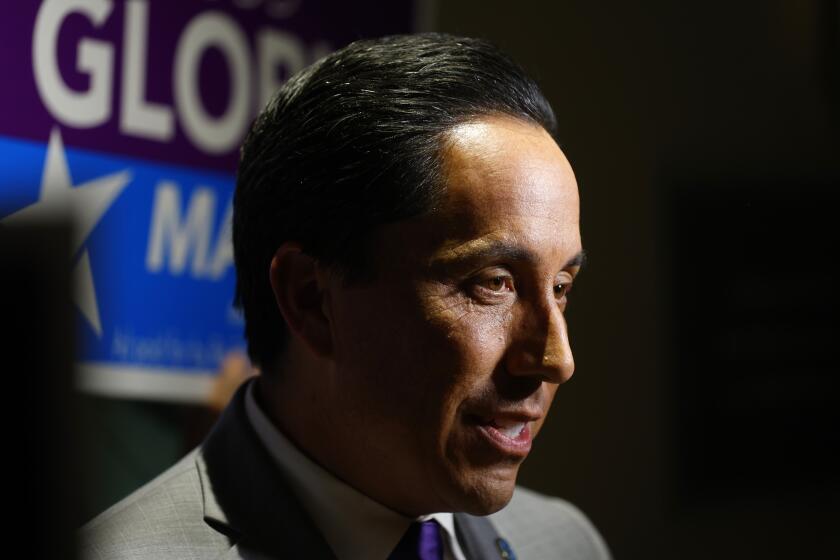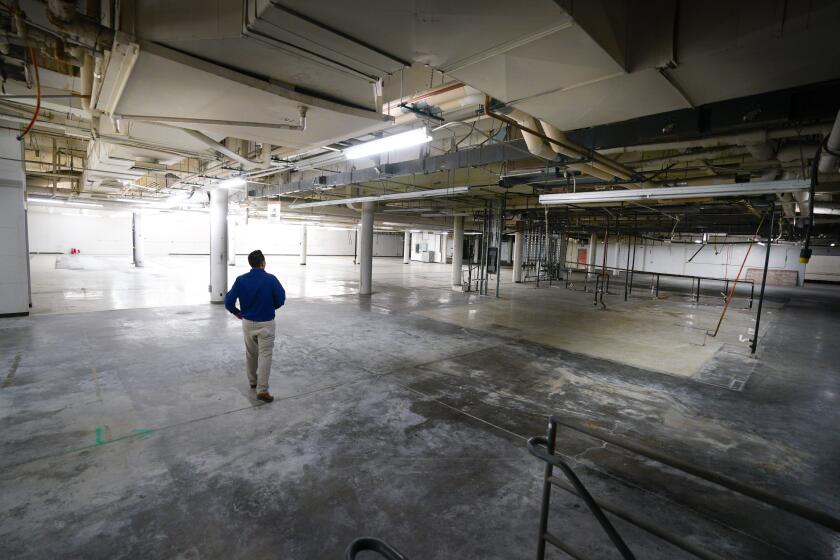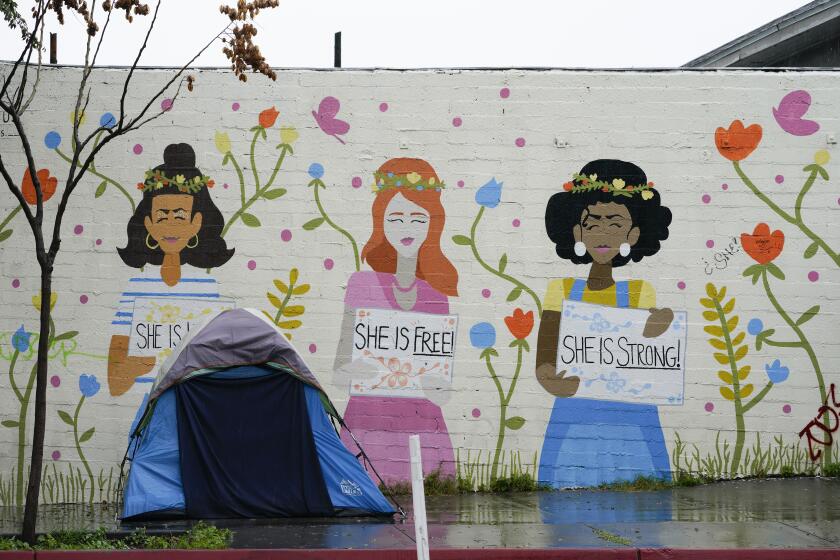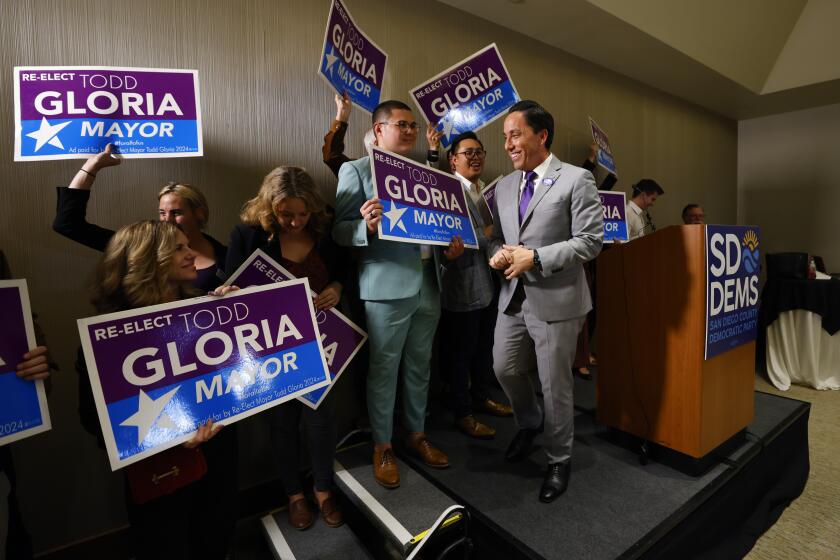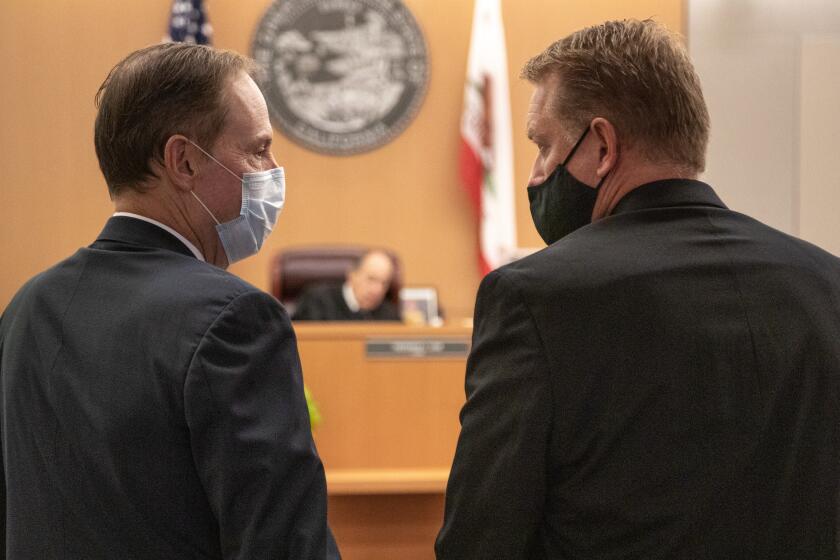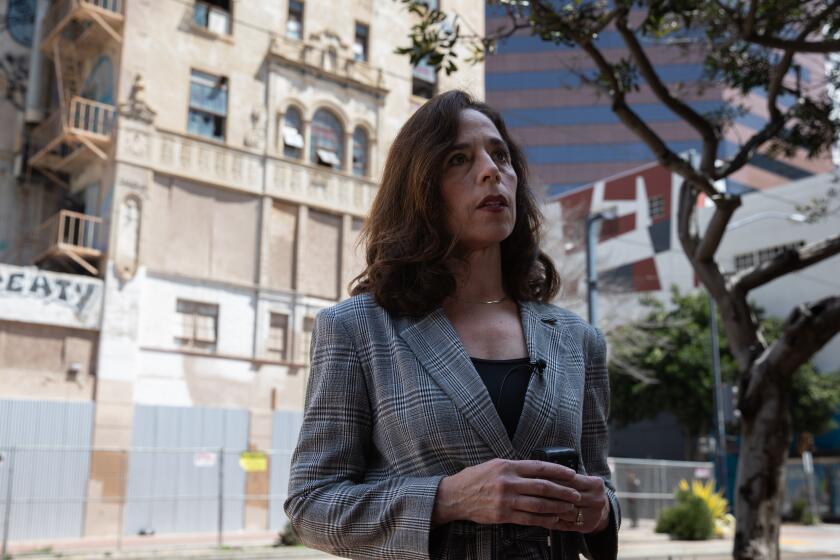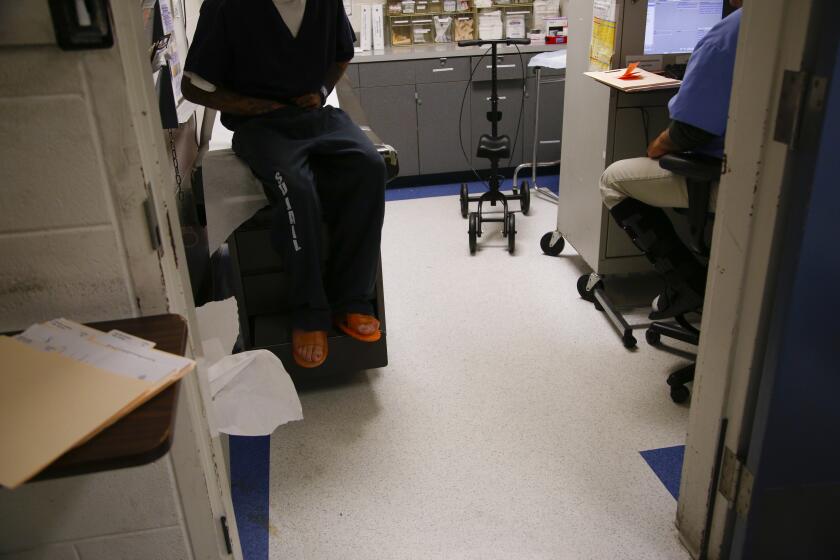City tacks parking, library fines onto late water bills
Consumer groups say overdue books shouldn’t be part of equation
San Diego public utility officials shut off customers’ water with no warning and have no specific policy outlining how to restart service or adjudicate complaints, local consumer advocates say.
The city also piles on unnecessary fees and penalties — even adding years-old parking tickets and library fines to the balances due — before agreeing to restore water service, the Utility Consumers’ Action Network says.
In one case, a customer had 22 separate referrals to the collections office, incurring an extra $25 fee each time.
The problem has grown worse in recent months as more people fall behind in their payments and city officials are not doing enough to help, said Jane Krikorian, a UCAN supervisor who works to resolve billing disputes between City Hall and its customers.
“These aren’t people who don’t want to pay their bills,” she said. “It’s people whose bills are being referred repetitively over to the city treasurer’s office without their knowledge.”
San Diego officials say they try their best to accommodate customers who experience short-term financial problems, but they cannot allow water service to continue indefinitely when individual bills are not paid.
“Staff both in my group and also in the office of the city treasurer do a really good job trying to explain this to customers,” said Michael Vogl, the water department deputy director in charge of customer service.
“The folks that are having these issues have significant financial issues going on,” he said. “They have continuously not paid and they may owe other things throughout the city.”
Vogl noted that the number of shut-offs dipped slightly between 2014 and 2015, to just under 20,000 for the budget year that ended on June 30. Shut-offs are on track to decline even more this fiscal year, with fewer than 15,000 customers being disconnected between July and early April.
“Our goal is to try to have a positive outcome for every single customer,” Vogl said. “Unfortunately there are some very difficult cases and at some point the service may have to be cut off.”
Lynn Sarkany’s water was shut off twice without notice, she said, and it has taken her dozens of hours to resolve the issue.
Sarkany rented a home in Rancho Bernardo last spring and paid the water bill for months without second-guessing the amount. But in August, when the charges climbed past $357, she called the city to request a meter reading to double-check its accuracy.
“I said, ‘I’m not going to pay my bill until I know what I’m paying for,’” said Sarkany, who lives alone and said she couldn’t possibly consume 500 gallons a day, as the city meter stated.
She called again in October, the same day she received a reminder notice that her bill was due, and paid $150 toward her debt — an amount she considered more in line with what she owed. The city again said it would send someone to read her meter.
Three weeks later her water was shut off without warning, and again early this year. Now she’s negotiating with the the city over fees and interest she says were wrongly charged — and still no one has turned up to check her meter.
“I get the feeling that the San Diego water department has a lot of problems that need to be fixed,” Sarkany said this week. “There are a lot of things going on in the background there that just don’t seem to make any sense.”
Regina Mitchell had a similar experience. Her water got shut off with no notice in 2014 after she couldn’t immediately pay a $3,000 bill. She thought water was included in her rent. It took her four months to raise enough money to get her service restored.
“They gave me the runaround and felt they didn’t have to explain,” Mitchell said.
She found out later that the city had been sending bills to her previous address. Mitchell, who works with special education students at Hoover High School, paid $2,000 in cash and $100 a month for more than a year, but with added fees, penalties and interest, the city still wants $900 more.
Vogl said he could not discuss specific cases. He said once delinquent accounts are sent to collections, the city treasurer is in charge.
Eddie Mohammad had his water turned off three times in recent months. Between the past-due water bills, penalties, interest and other charges, his debt was more than $6,000, including some $400 for two disputed parking tickets from 2009 and 2010.
“To be very honest with you, I don’t believe it was fair” to roll the parking fines into his delinquent water account, said Mohammad, a fixed-income senior on Social Security who worked out a payment plan to restore water to his home. “The address on the tickets, I didn’t even recognize.”
City spokeswoman Katie Keach said under the city charter and municipal code, the treasurer is responsible for collecting all debts owed to the city.
“If the customer fails to pay ongoing invoices/amounts, they are subsequently referred,” she wrote in an email. “If a customer is delinquent on several different city accounts — like parking tickets, library fines, water bills — that office is charged with collecting all debts owed.”
Keach said the City Council recently approved a new program — Help to Others, or H2O — to provide some support to people who can’t keep up with costs.
“We also direct customers with financial challenges to San Diego 211, which can help connect customers with a wide variety of assistance programs,” she wrote.
At UCAN, Krikorian said there is more the city could do.
Specifically, she said officials could stop shutting off water without notice. Too often, her clients are negotiating to resolve delinquent bills but have their service cut off anyway, adding more fees and interest to the debt.
She also said the bills themselves should be easier to understand, with credits and debits clearly spelled out — with interest charges and penalties waived in hardship cases.
“The fees are a revenue line in the city budget, and that bothers me,” she said. “The city shouldn’t be making money off poor people. They should be more creative in the ways to generate revenue. When customers get behind, they need help rather than a kick in the head.”
The city water department serves about 280,000 customers who pay about $820 million a year.
The number of accounts referred to the treasurer dropped by 960 last year, to 6,365 cases, a 13 percent drop, the water department said. The amount of money those customers owed more than doubled over the same period, to $2.1 million.
jeff.mcdonald@sduniontribune.com
Get Essential San Diego, weekday mornings
Get top headlines from the Union-Tribune in your inbox weekday mornings, including top news, local, sports, business, entertainment and opinion.
You may occasionally receive promotional content from the San Diego Union-Tribune.



